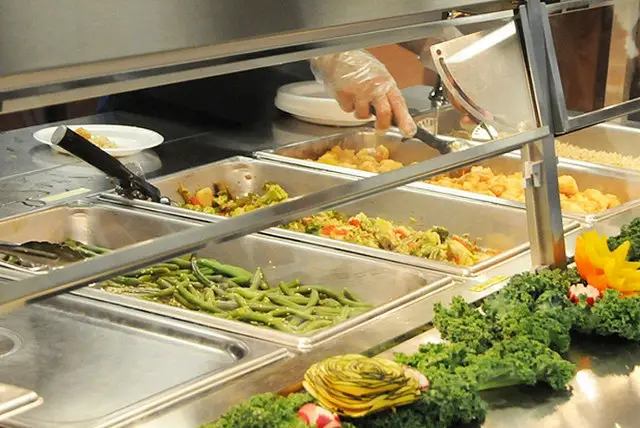Nearly a quarter of the pupils on the Isle of Wight who could claim free school meals five years ago are no longer eligible for them.
Children can claim free school meals if their parents receive certain benefits. As the number of benefit claimants in England has dropped in recent years, thousands of children have lost their right to free meals at school lunchtimes.
The Child Poverty Action Group warned that the drop risked leaving some children without their only hot meal of the day.
Nine pupils in 30 growing up in poverty
Alison Garnham, the charity’s chief executive said:
“At a time when more children are growing up in poverty, fewer are getting the help they need with free school meals. Out of a class of 30 kids, nine are growing up in poverty and six of these have working parents.
“When parents earn just above the threshold for a free meal children are at risk of losing what might be their only hot balanced meal of the day.
“School meals should be free for all as an important part of the school day – we don’t see patients in hospital being means tested before they are given a meal. At the very least, the rules must be changed so that all families entitled to Universal Credit get free school meals, including many working families.”
Newly released figures from the Department for Education show that 614 fewer children on the Isle of Wight’s state primaries and secondaries were receiving free school meals in January this year than in 2013.
In nurseries and primary schools, five years ago, 18.4% of the Isle of Wight’s children were eligible for and claiming free school meals. By January this year, that had dropped to 13.9%.
Pupils in Reception, Year 1 and Year 2 are automatically eligible for free school meals in England. From Year 3, eligibility for meals is linked to parents’ benefits.
Secondary age pupils
Free school meals were also claimed by fewer secondary school children on the Isle of Wight this year. In 2013, 13.1% were receiving free lunches, but by January this year it had dropped to 11.2%.
Although the percentage changes are small, it effectively means that 522 pupils are missing out on free school meals on the Isle of Wight.
Across England, 13.2% of primary and secondary pupils claim free school meals. It means 290,000 fewer pupils receive free school meals than they would have done in 2013.
Universal Credit complications
The situation has since been complicated by the rollout of Universal Credit, replacing other benefits. In February, the Government announced that children in England whose parents received Universal Credit and earned to £7,400 would be eligible for free school meals, a threshold frozen until the 2021-22 academic year.
The Institute for Fiscal Studies says that this means 50,000 more children will be entitled to the meals in the future, but warned that 160,000 children who currently receive them could miss out as the rules change.
Zahawi: Helping ‘those most at need’
Speaking when the new rules were announced, the Education Minister, Nadim Zahawi, said that the changes would ensure the pupils most at need would continue to receive free meals at school.
He said:
“It is right that we must continue to offer the most disadvantaged young people additional help and I am pleased that, following public consultations, we can extend free school meals and the free early education entitlement for disadvantaged two-year-olds.
“Tens of thousands more children will be entitled to free school meals by 2022 compared to the previous benefits system.”
Rayner: “An absolute scandal”
However, Labour said that they believe the change in rules could result in over one million fewer children receiving meals in the future than they would have done.
Angela Rayner, the Shadow Education Secretary, said in response to the announcement:
“It is an absolute scandal that the Conservatives are pressing ahead with a plan that could leave over a million children without a hot meal in schools.
“These plans will create a dangerous cliff-edge in the Universal Credit system and make it harder for families on low incomes to make ends meet.”
Article shared by Data Reporter as part of OnTheWight’s collaboration with Press Association and Urbs Media





